Safe Schools Declaration
The Safe Schools Declaration is an inter-governmental political commitment that was opened for endorsement by countries at an international conference held in Oslo, Norway, on 28 May 2015.[1][2][3][4][5][6] The Declaration provides countries the opportunity to express political support for the protection of students, teachers, and schools during times of armed conflict; the importance of the continuation of education during armed conflict; and the implementation of the Guidelines for Protecting Schools and Universities from Military Use during Armed Conflict.[5][7][8]
As of July 2017, 68 countries have endorsed the Safe Schools Declaration, which remains open for additional countries to join.[9][10][11] The Ministry of Foreign Affairs of Norway is the depositary of endorsements.[12][13]
On March 28-29, 2017, the ministries of foreign affairs and defense of Argentina co-hosted the Second International Safe Schools Conference in Buenos Aires.[14]
Drafting
The Safe Schools Declaration was developed through consultations with states led by the ministries of foreign affairs of Norway and Argentina between January and May 2015.[11][15]
Representatives from more than 60 countries attended the conference launching the Safe Schools Declaration in 2015, along with the Norwegian Foreign Minister Børge Brende, Norwegian Defence Minister Ine Marie Eriksen Søreide, and Ziauddin Yousafzai the father of Nobel Peace Prize laureate Malala Yousafzai.[5][8][16]
Representatives from more than 80 countries attended the second Safe Schools Conference in Buenos Aires in 2017.[17]
Contents and Commitments
"The impact of armed conflict on education presents urgent humanitarian, development and wider social challenges. Worldwide, schools and universities have been bombed, shelled and burned, and children, students, teachers and academics have been killed, maimed, abducted or arbitrarily detained. Educational facilities have been used by parties to armed conflict as, inter alia, bases, barracks or detention centres. Such actions expose students and education personnel to harm, deny large numbers of children and students their right to education and so deprive communities of the foundations on which to build their future. In many countries, armed conflict continues to destroy not just school infrastructure, but the hopes and ambitions of a whole generation of children."
– Opening paragraph of Safe Schools Declaration[7]
The Safe Schools Declaration describes the immediate and long-term consequences of attacks on students, teachers, schools, and universities, and the military use of schools and universities, during times of armed conflict. It contrasts this with the positive and protective role that education can have during armed conflict.[7]
By joining the Declaration, states formally endorse the Guidelines for Protecting Schools and Universities from Military Use during Armed Conflict and commit to “bring them into domestic policy and operational frameworks as far as possible and appropriate.”[7]
The Declaration also contains a number of other commitments aimed at strengthening the prevention of, and response to, attacks on education during armed conflict, including by: collecting reliable data on attacks and military use of schools and universities; providing assistance to victims of attacks; investigating allegations of violations of national and international law and prosecuting perpetrators where appropriate; developing and promoting “conflict sensitive” approaches to education; seeking to continue education during armed conflict; and supporting the work of the United Nations on the children and armed conflict agenda.[7]
Lastly, the Declaration is a framework for collaboration and exchange, as endorsing states also agree to meet on a regular basis to review implementation of the Declaration and use of the Guidelines.[7]
Endorsements
As of July 2017, the following 68 states had endorsed the Declaration:[9][10]
-
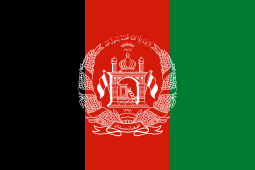 Afghanistan
Afghanistan -
 Albania
Albania -
 Angola
Angola -
 Argentina
Argentina -
 Armenia
Armenia -
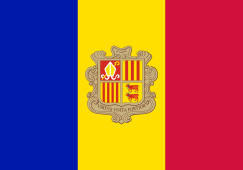 Andorra
Andorra -
 Austria
Austria -
.svg.png) Belgium
Belgium -
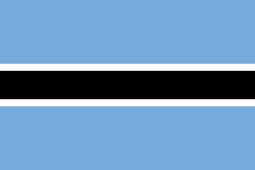 Botswana
Botswana -
 Brazil
Brazil -
 Bulgaria
Bulgaria -
 Canada
Canada -
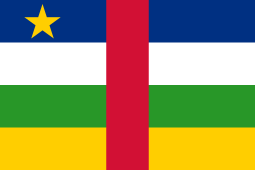 Central African Republic
Central African Republic -
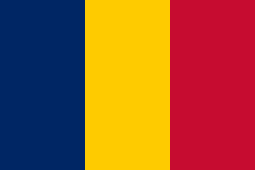 Chad
Chad -
 Chile
Chile -
 Costa Rica
Costa Rica -
 Cote d'Ivoire
Cote d'Ivoire -
 Cyprus
Cyprus -
 Czech Republic
Czech Republic -
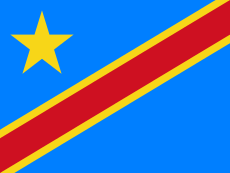 Democratic Republic of Congo
Democratic Republic of Congo -
 Denmark
Denmark -
 Ecuador
Ecuador -
 Finland
Finland -
 France
France -
 Georgia
Georgia -
 Greece
Greece -
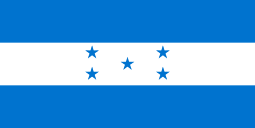 Honduras
Honduras -
 Iceland
Iceland -
 Ireland
Ireland -
 Italy
Italy -
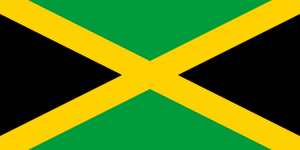 Jamaica
Jamaica -
 Jordan
Jordan -
 Kazakhstan
Kazakhstan -
 Kenya
Kenya -
 Lebanon
Lebanon -
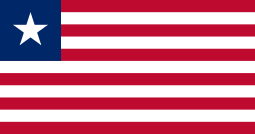 Liberia
Liberia -
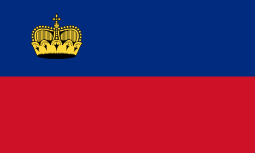 Liechtenstein
Liechtenstein -
 Luxembourg
Luxembourg -
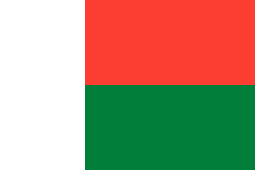 Madagascar
Madagascar -
 Malaysia
Malaysia -
 Malta
Malta -
 Montenegro
Montenegro -
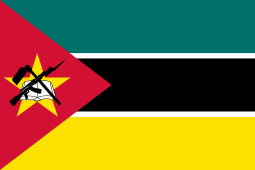 Mozambique
Mozambique -
 New Zealand
New Zealand -
 Netherlands
Netherlands -
 Niger
Niger -
 Nigeria
Nigeria -
 Norway
Norway -
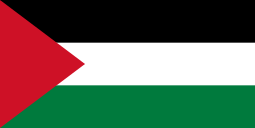 Palestine
Palestine -
 Panama
Panama -
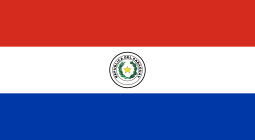 Paraguay
Paraguay -
 Poland
Poland -
 Portugal
Portugal -
 Qatar
Qatar -
 Romania
Romania -
 Serbia
Serbia -
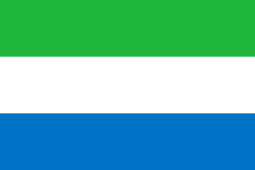 Sierra Leone
Sierra Leone -
 Slovakia
Slovakia -
 Slovenia
Slovenia -
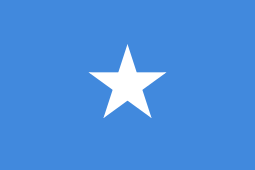 Somalia
Somalia -
 South Africa
South Africa -
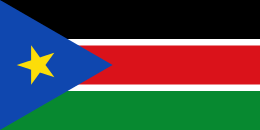 South Sudan
South Sudan -
 Spain
Spain -
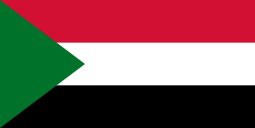 Sudan
Sudan -
 Sweden
Sweden -
 Switzerland
Switzerland -
 Uruguay
Uruguay -
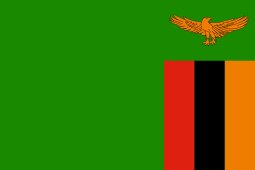 Zambia
Zambia
Reactions
Former Prime Minister of the United Kingdom, Gordon Brown stated that "every country must now support" the Declaration.[18]
Leila Zerrougui, the Special Representative to the Secretary-General of the United Nations said that she would "strongly advocate on behalf of children in conflict situations to persuade as many other Member States as we can to throw their support behind the initiative." [19]
Jan Egeland, Secretary General of the Norwegian Refugee Council noted at the Safe Schools conference that "10 years from now we will look back on this day. Those who endorsed will say ‘we should really have done this earlier’. Those who did not endorse will say ‘why did we not endorse it?'" [20]
References
- ↑ "Oslo meet pledges to protect schools in war". The Local No. 2015-05-29.
- ↑ Joe Humphreys (2015-05-20). "State urged to sign up to Safe Schools Declaration". Irish Times.
- ↑ Ulrike Scheffer (2015-05-17). "Deklaration zum Schutz von Schulen: Menschenrechtler empört über Deutschland". Der Taggespiegel.
- ↑ Maria Fluxa (2015-05-29). "28 millones de niños sin educación por culpa de la guerra". El Mundo.
- 1 2 3 "Rapport fra konferansen om beskyttelse av utdanning i konfliktsituasjoner". Norwegian Ministry of Foreign Affairs. 2015-10-05.
- ↑ Sean Coughlan (2015-05-29). "Campaign to stop attacks on schools". BBC News.
- 1 2 3 4 5 6 "Safe Schools Declaration" (PDF). Norwegian Ministry of Foreign Affairs. 2015-05-29.
- 1 2 Roger Hamilton-Martin (2015-07-02). "Countries Commit to Protecting Education During Conflict". Inter Press Service News Agency.
- 1 2 "States that have endorsed the Safe Schools Declaration". Norwegian Ministry of Foreign Affairs.
- 1 2 "Safe Schools Declaration Endorsements". Global Coalition to Protect Education from Attack. Retrieved 2015-10-13.
- 1 2 Børge Brende (2015). "Introduction by the Norwegian Minister of Foreign Affairs Mr. Børge Brende" (PDF). Norwegian Ministry of Foreign Affairs.
- ↑ "Endorsement of the Safe Schools Declaration". Norwegian Ministry of Foreign Affairs.
- ↑ "Letter for Endorsing the Safe Schools Declaration" (PDF). Retrieved 2015-10-12.
- ↑ "Second International Conference on Safe Schools". Argentine Ministry of Foreign Affairs.
- ↑ "Guidelines for Protecting Schools from Military Use:Next steps". Global Coalition to Protect Education from Attack.
- ↑ "Broad support for protecting education from attack". Norwegian Ministry of Foreign Affairs. 2015-05-29.
- ↑ "Over 80 states gather to discuss Safe Schools Declaration at Buenos Aires conference". Global Coalition to Protect Education from Attack. 2017-03-30.
- ↑ Gordon Brown (2015-04-02). "Enough! The Attacks on Schools Must End". Huffington Post.
- ↑ "Statement of Leila Zerrougui delivered at "Side-Event" of Human Rights Council: Protecting Education from Attack". Office of the Special Representative of the Secretary-General for Children and Armed Conflict. 2015-06-24.
- ↑ Hanne Eide Andersen (2015-05-29). "We urge all governments to endorse the Safe Schools Declaration". Norwegian Refugee Council.